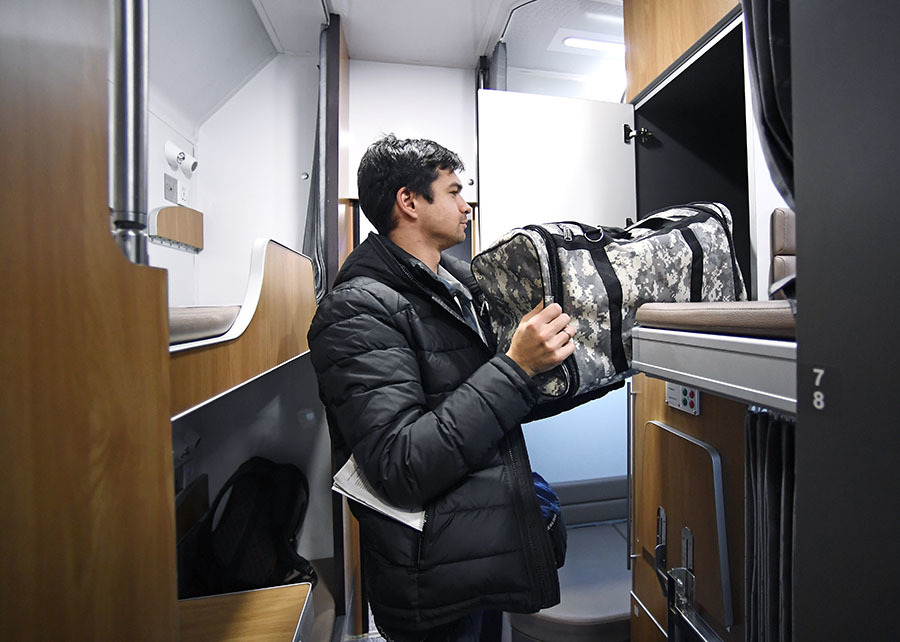Money Transfer Fees
Starting from May 1, transfers made between individuals to the System of Quick Payments in the amount of up to 100 thousand rubles will be carried out without collecting a commission by banks.
Transfers in the amount of more than 100 thousand rubles are taxed by a commission of not more than 0.5%, however, the fee also cannot exceed 1.5 thousand rubles.
Recall that 55 banks participate in the Quick Payment System, including Alfa-Bank, VTB, Gazprombank, Raiffeisenbank, Rosbank and others. The banks themselves and establish commissions.
- RIA News
- © Alexey Filippov
Subsidies for business
On May 1, the Federal Tax Service launched a special service designed to simplify the filing of applications for subsidies for the payment of salaries to employees.
Claims for such payments will be able to enterprises that are on the list of those most affected by the spread of coronavirus infection.
A requirement is imposed on them, according to which the number of employees should be at least 90% of the values in March 2020. The amount of the subsidy is calculated based on the number of employees in March multiplied by 12 130 rubles.
Recalculation of pensions
In May, the Pension Fund of Russia (PFR) will recalculate social co-payments for non-working pensioners.
It is expected that this measure will affect 6.5 million Russians, including those whose insurance pension did not reach the subsistence level. Recall that an insurance pension is paid to all who have reached a certain age and have accumulated the required number of pension points.
Also, payments will be increased to participants in the Great Patriotic War, employees of law enforcement agencies, intelligence officers, owners of the “For the Defense of Leningrad” awards and others. The Office estimates the number of these categories of pensioners at 10 thousand people.
Nutrition for students
On May 1, a law comes into force that guarantees free meals for students in grades one through four.
The new order suggests that schools will have to provide hot meals at least once a day, while publishing the menu on the website of the educational institution.
It is expected that by September 1, 2023, hot meals in accordance with the new order will be available in all Russian schools.
The need to introduce this measure in January was spoken by Vladimir Putin. The President paid attention to this issue during his message to the Federal Assembly.
Sale of alcohol in apartment buildings
Since May 5, a ban has been introduced on the sale of alcohol in restaurants, cafes and bars located in apartment buildings and in adjacent territories, with a service room area not exceeding 20 square meters. m
Regional authorities got toughened up these requirements. Rosalkogolregulirovanie will control the violators.
Electronic documents in experimental mode
An experiment will also start on May 5, in which companies and employees can voluntarily transfer personnel workflows to electronic format. We are talking about employment contracts, vacation schedules, travel orders and more.
It is noteworthy that employees will be able to refuse or confirm the company's decision to translate a number of documents into electronic format. To do this, write a statement.
Rules for the carriage of passengers and baggage by train
Starting May 3, the Ministry of Transport introduces amendments to the rules for the transport of passengers and baggage by rail.
- RIA News
- © Ekaterina Chesnokova
Long-distance train passengers will be required to provide a mobile phone number or other means of communication. This is required for prompt notification of changes in train schedules or other changes.
In addition, the issue of placing hand luggage in wagons where a place for such things was provided only on the lower or upper shelf is being settled. In such situations, passengers on both shelves now have the right to place hand luggage in the available space.
Marking cosmetics
On May 1, a new version of the technical regulation of the Customs Union “On the safety of perfumes and cosmetics” will come into force.
The document provides new requirements for the labeling of cosmetic products, as well as the documentation necessary for the declaration of goods.
Among the new requirements will be a ban on the addition of sucrose and other easily fermentable carbohydrates to toothpastes, and a mandatory warning label on aerosol products with a propellant. Information about the beneficial properties of the product must also be confirmed - you need to indicate the results of studies or data on the substances in the composition.

